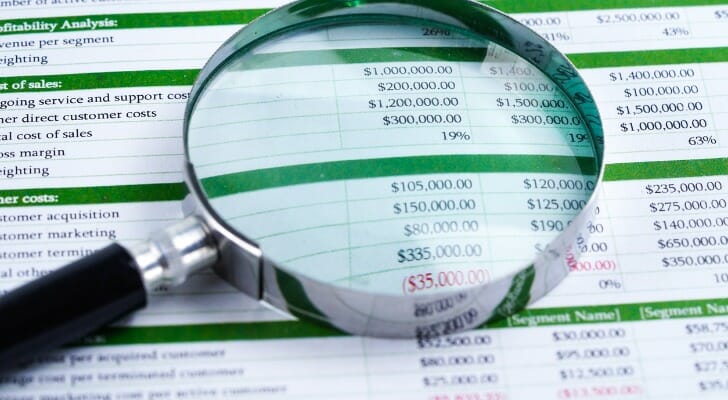When it comes to picking an expert to help you manage your money, two of the more common types of experts are CPAs and CFAs. The former certification is typically earned by accounting professionals, while the latter certification is earned mainly by investment analysts. Here’s the difference between a CFA and a CPA and what to know about both when determining which one is right for you.
If you are looking for financial advice, SmartAsset’s free tool can match you with up to three vetted financial advisors who serve your area.
What Is a CPA?
A certified public accountant, or CPA, takes the CPA exam administered by the American Institute of Certified Public Accountants (AICPA) that makes them a licensed accountant. A state exam is also required. Each state has its own set of standards and requirements to qualify.
CPAs have the capacity to file public documents, like your tax returns. They also handle things like:
- Auditing financial statements
- Handling financial statements that go to places like the IRS
- Filing tax returns on your behalf
CPAs can work for individuals or companies, like public accounting firms. For businesses, you might find a CPA advising on how to incorporate your company. For individuals, CPAs can help you lower your tax bill or increase your return.
Because a CPA has a higher level of certification than a regular accountant or bookkeeper, they’re in higher demand. It also means they earn more money for their certification. The average annual salary for a CPA is $72,839, while the average salary for an accountant is $53,930. CPAs offer more services at a higher level of expertise compared to an accountant. Accountants might not have the clearance to handle certain documents, like those that go to government entities.
What Is a CFA?

A chartered financial analyst, or CFA, has deep knowledge of financial analytics and investment allocation. This financial expert has completed the rigorous CFA program, which includes a series of challenging tests administered by the CFA Institute.
You’ll typically find CFAs at:
- Investment firms
- Financial advisor firms
- Banks
- Insurance companies
And similar places that directly work with investing and analyzing finances. If you’re looking for someone to help give you expert advice on investing, trends and market performance, you might enlist the help of a CFA.
CFAs might do some work with CPAs. As CPAs prepare annual reports, CFAs use those reports to make investment recommendations to clients. They also handle tasks like wealth management and financial planning. You might talk to a CFA about the appropriate risk tolerance, based on your age and what type of investor you are.
What’s the Difference?
Both CFAs and CPAs require certifications from specific institutions and qualifying exams. For CFAs, you’ll need to pass the CFA program administered by the CFA Institute. For CPAs, you’ll need to pass the exam from the AICPA. Otherwise, they aren’t quite the same.
- CFAs focus on financial planning. CPAs focus on taxes and accounting.
- CPAs create and organize financial reports from companies. CFAs will use those reports when recommending clients invest with (or avoid) them.
- Use a CFA as an investment manager. Use a CPA to file your taxes.
While both CPAs and CFAs have strong backgrounds in finance, how they work for you are different. When choosing one over the other, ask yourself what goal you’d like to achieve. If you need someone to help you lower your tax bill or increase your return, talk to a CPA. If you want professional, tailored investment advice, talk to a CFA.
Bottom Line

One letter isn’t the only difference between CPAs and CFAs. Enlisting the help of a professional is a great way to make sure your money is working hard for you. But don’t ask for help from the wrong type of person. Understand the difference between a CFA, a CPA and other financial professionals. There’s a chance you might need help from someone else entirely.
Tips for Getting Financial Advice
- Consider talking to a financial advisor about whether you could benefit from the services of either a CPA or a CFA. SmartAsset’s free tool matches you with up to three vetted financial advisors who serve your area, and you can interview your advisor matches at no cost to decide which one is right for you. If you’re ready to find an advisor who can help you achieve your financial goals, get started now.
- Before talking with a CPA, use the SmartAsset tax return calculator. Just fill in some information about your finances to estimate your tax return. You can also use the income tax calculator to see how much you can expect to pay this year.
Photo credit: ©iStock.com/AndreyPopov, ©iStock.com/ferrantraite, ©iStock.com/ispyfriend
